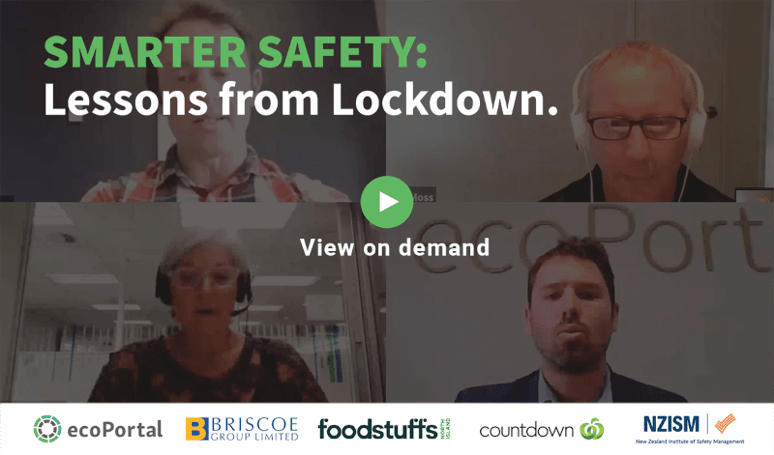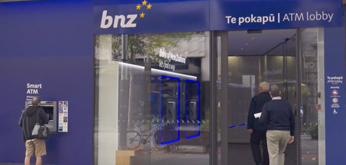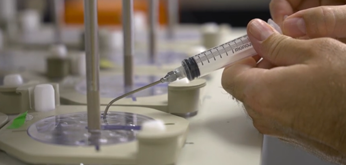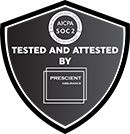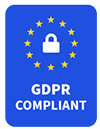18th June 2020
COVID-19 has been a steep learning curve that took many people by surprise. Supermarkets are among the few retailers who have been allowed to keep their doors open and New Zealand’s top retail brands will be the first to tell you that it hasn’t been an easy transition. In fact, Michelle Cooper, Head of Safety and Wellbeing at Foodstuffs, referred to it as a “baptism by fire that no-one was really prepared for.”
But out of the ashes, Foodstuffs and Woolworths NZ have risen to the challenge, doing what was required to create a safe environment for customers and staff.
They’ve had to learn on the fly, reflecting, adapting and implementing new processes and systems as they go – and there’s been a number of things that have caught them off guard.
ecoPortal asked them about the biggest trip-ups they faced operating during lockdown – and how other businesses could avoid them through efficient risk management.
-
How to safely use safety gear
While the masks and gloves weren’t deemed necessary by the Ministry of Health, supermarkets decided to invest in a good supply to provide their teams and customers with reassurance. Once they had the supply, they realised they needed to go a step further. Supplying equipment wasn’t enough – staff also needed to be educated on how to use the gear correctly.
Ben Sheidow, Head of Health, Safety and Wellbeing at Woolworths NZ, explains that they created how-to videos that demonstrated correct usage of masks and gloves – something they hadn’t initially considered.
“When the advice came, we were working with Foodstuffs to get the right advice from a health perspective, and what PPE was required. We stood behind that advice and communicated that to our team, answering a lot of questions.”
While PPE gear is the most obvious example, the post-COVID environment is throwing up the need for new processes and equipment – ensuring your staff understand how to follow and use these is as important as having them in the first place.
-
Get clear on definitions before implementation
Michelle explains that having a robust health and safety framework prepared them to quickly expand on standard cleaning and sanitising practices.
But where they struggled was getting clear on definitions.
For example, what was considered a vulnerable worker, and what support would they require to keep safe?
“When you look at New Zealand as a whole, we have a lot of asthmatics, people who are morbidly obese, we have a lot of people who are pregnant in the workplace. We needed to be sensitive to that.”
She adds that understanding that vulnerability extends beyond the worker to the people in their bubble was important to getting in-store controls right.
“The workers themselves might not be vulnerable, but a family member is,” Michelle says.
Similarly, Woolworths supermarkets established new hygiene protocols for after work in a bid to keep workers and their families safe.
“We looked at hygiene practices for when they finish work and go back to their bubbles – how they get home, when they put their clothes into the wash, shower, and use of hand sanitiser,” Ben says.
“There are a lot of lessons we can learn from this going into the future. We anticipate many of these new ways of working will stay with us long after we get back to some level of normality,” Ben adds.
The key out-take? Take on board the information available, but make sure you carefully consider what it all means for your business in practice.
-
Perception of safety is important
Retailers trading through lockdown had to contend with conflicting advice on areas like social distancing and the use of PPE gear. Businesses managing contract tracing requirements in level two will sympathise.
With an anxious and fearful public, the supermarkets saw early on that it was important to reassure staff and customers that they were doing everything right.
Ben says they took feedback from the team and customers to ensure they were doing just that. And while cleaning regimes were ramped up, the company also ensured these efforts were seen.
“We wanted to give people comfort that the right processes were in place. We got additional cleaning done, particularly during operating hours, so that it was visible – it was reassurance that the right standards were in place.”
Similarly, while the Ministry of Health was recommending a physical distancing of one metre in the workplace to the public – and for team members – that would be seen as too close.
“Jacinda was on television telling people that we needed to keep two metres apart. So public perception became the two metres. There was no point fighting it and we should just run with it. That's served us really well and provided peace of mind for both customers and team members.”
When reviewing your protocols for levels one and two, consider not just what will keep people safe, but what will make people feel safe, too. This will contribute to the emotional wellbeing of your staff - also an important health and safety consideration - and build trust with your customers.
Expect the unexpected
Managing health and safety during all this uncertainty is no easy feat. But if there’s one thing New Zealand’s top supermarket brands have learned, it’s to expect the unexpected.
By nature, crises are unpredictable so while there’s no way to plan, you can prepare. Having a solid health and safety system that you can base fundamental decisions on is key but you should expect to make some mistakes along the way. The key is to acknowledge those missteps, learn from them, and find a way forward.
COVID-19 isn’t a crisis in isolation – the effects of it are being felt globally, and we’re still not sure what the aftermath looks like. What we do know is that keeping our people and our customers safe will help counter the negatives and get back to normal faster.
